Google’s Top 20 Ranking Factors: The Complete List of 2018 is below
Google use over 20 ranking factors in their algorithms.
But which factors are they?
Just for you we put together a whole list.
Some are proven, Some are controversial and some are doubtful. But they all are here.
1.Domain Age: It defines a length of time that a website is registered and active. It is trustful to website visitors and to the search engines. Two factors are considered in it.
- the length of time that a domain is registered.
- the age of the website in regards to how long that it active, or how long that it has crawl able content on the web.
Domain age is important for SEO because the age of a website is consider a search engine ranking factor.
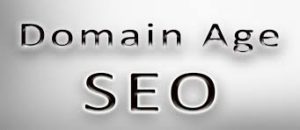
2. Keyword As First Word In Domain: A domain starts with target keyword has an edge over sites that either don’t have that keyword in their domain (or have the keyword in the middle or end of their domain). There is some controversy , that whether target Keyword as a First Word in a Domain is a Ranking Factor or not? But believe, it can Boost your Rankings.
3. What Is Domain registration length: It refers the number of year the domain renewal amount paid in advance to the Registrar, You pay for at least 1 year & maximum 10 years. For every domain , you have to pay a yearly renewal amount. The domains which are registered for a long time Search Engine gives more preference to them. Because spamming web domains are generally registered for not more than a year.
4. Keyword in Subdomain: A Moz study suggested that placement of keywords in a site subdomain have the ability to boost its ranking. For the best results, use just high value keywords in subdomain which help you to boost your Web Page on search engine.
5. Exact Match Domain(EMD): The (EMD) is a filter, Google launched to prevent poor quality sites from ranking well because they have words that match search terms in their domain names. When a fresh EMD Update, sites that have improved their content may place in good ranking. New sites with poor content or those missed by EMD may get delete. Infact, false positive may get released.
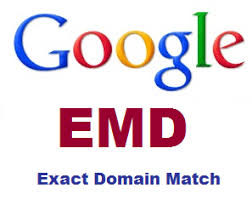
6. Public vs. Private WhoIs: Keep your WHOIS data private or public doesn’t matter to Google. Keeping it not public will not impact your rankings directly. Google itself is a registrar and it can access the domain information of any website. If Google sense something is fishy then it can penalize the website. Owning 2 or 3 domains with WHOIS privacy on it not matter.It up to the website Owner to keep our WHOIS data private or public , it not affect your SEO.
7. Country Top-Level Domain (TLD) extension: It is the part of the domain name located to the right of the dot (” . “). Common TLDs are .com, .net, and .org. others are .biz, .info, and .ws. These common TLDs have certain guidelines, but available to any registrant, anywhere in the world.
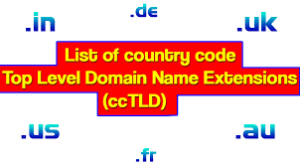
8. Keywords in Title Tag: You just wondering that the keywords in title tag still is a matters in modern SEO. Then comes to your click-through rate, the answer is yes.
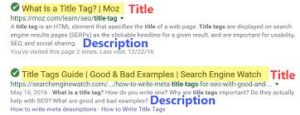
- 9. Keywords in Description Tag: A meta description strategyfully employ the keywords that page is targeting, also create a compelling description that a searcher will want to click. It should be relevant to the page and unique for other pages.
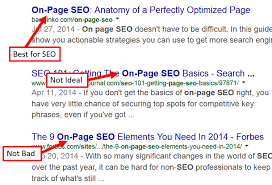
- 10. Keyword Appears in H1 Tag: H1 tags considered as a “second title tag”.With your title tag, Google uses H1 tag as a secondary relevancy signal, according to result.

- 11. Content Length: Longer content produce Higher Search Ranking.It dominates the page one of search rankings. Simply looking its word count Google doesn’t decide a page’s ranking .While it is clearly correlated with better search rankings, Only long form content is the factors that help Google to rank pages.
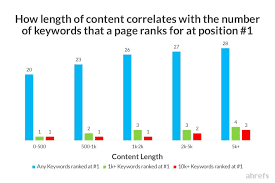
- Keyword Density: PERCENTAGE of times a keyword or phrase appears on a web page compared to the total number of words on the page. SEARCH ENGINE OPTIMIZATION can be used to determine whether a web page is relevant to a specified keyword or phrase.
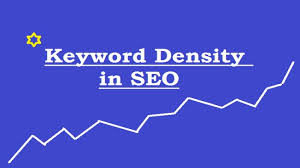
- Page Loading Speed via HTML: Page load time is an official ranking factor. Search engine return a web content which is fast and easy to use. Page speed test tool use to see what factor slows down your page and how to load it faster. This provides a best analysis of the page load time and find out the time it takes to load at different connection speeds. Its also useful for checking which factor of your webpage take the shortest and longest amounts of time for loading.
- Page Loading Speed via Chrome: When you load a page there is a nice report on timeline of the page showing the actual page load time, CSS, JS etc. load times.
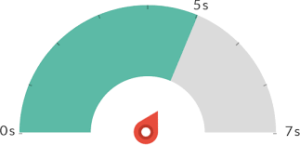
- Duplicate Content: It is a content that appears on the Internet more than one place and it is defined as a location with a unique website address (URL) ,So you got duplicate content if the same content appears at more than one web address and Site owners may suffer ranking and traffic losses .
![]()
Rel=Canonical: It telling search engines that a specific URL represents the master copy of a page. It prevents problems caused by identical or duplicate content present on multiple URLs. This tag tells search engines which version of a URL you want to appear in search results.
- Image Optimization: If you wont to made your page load time low then just reduce the size of image without destroy its quality. It is about image SEO.to get your product images and decorative images to rank on Google, Here is some point you have to remember when you optimize images for the web:
- Your image name should be in plain language and should be descriptively.
- Image dimensions and product angles should be wisely.
- Reduce the file size of your images.
- Use image sitemaps.
- Optimize your thumbnails.
- You also beware of decorative images.
- You must optimize your alt attributes.

Keyword in H2, H3 Tags: For on-page SEO the Header tag is important factor because it communicates to the search engine and showing what your website is about. Search engines recognize the copy in your header tag than the rest. The h2 is a subheading and contain similar keywords to h1 tag and in the same way h3 is a subheading for your h2 tag and also contain similar keywords and so on. It is a hierarchy based tag, and the above being more important than the below.
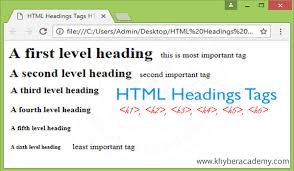
Outbound Link Quality: In your linking strategy it play very important role. It can’t dilute your site if they are towards high quality websites.
Syndicated Content: The content copied with the authors permission, whether you offer to the others or copied someone else. Online content syndication referred a piece of content is copied and shared – either partially or entirely with permission of the author. A piece of content is syndicated will be a message displayed next it, such as ‘This article originally appeared on.
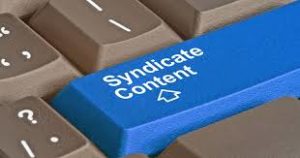
 +91 7709502607
+91 7709502607 